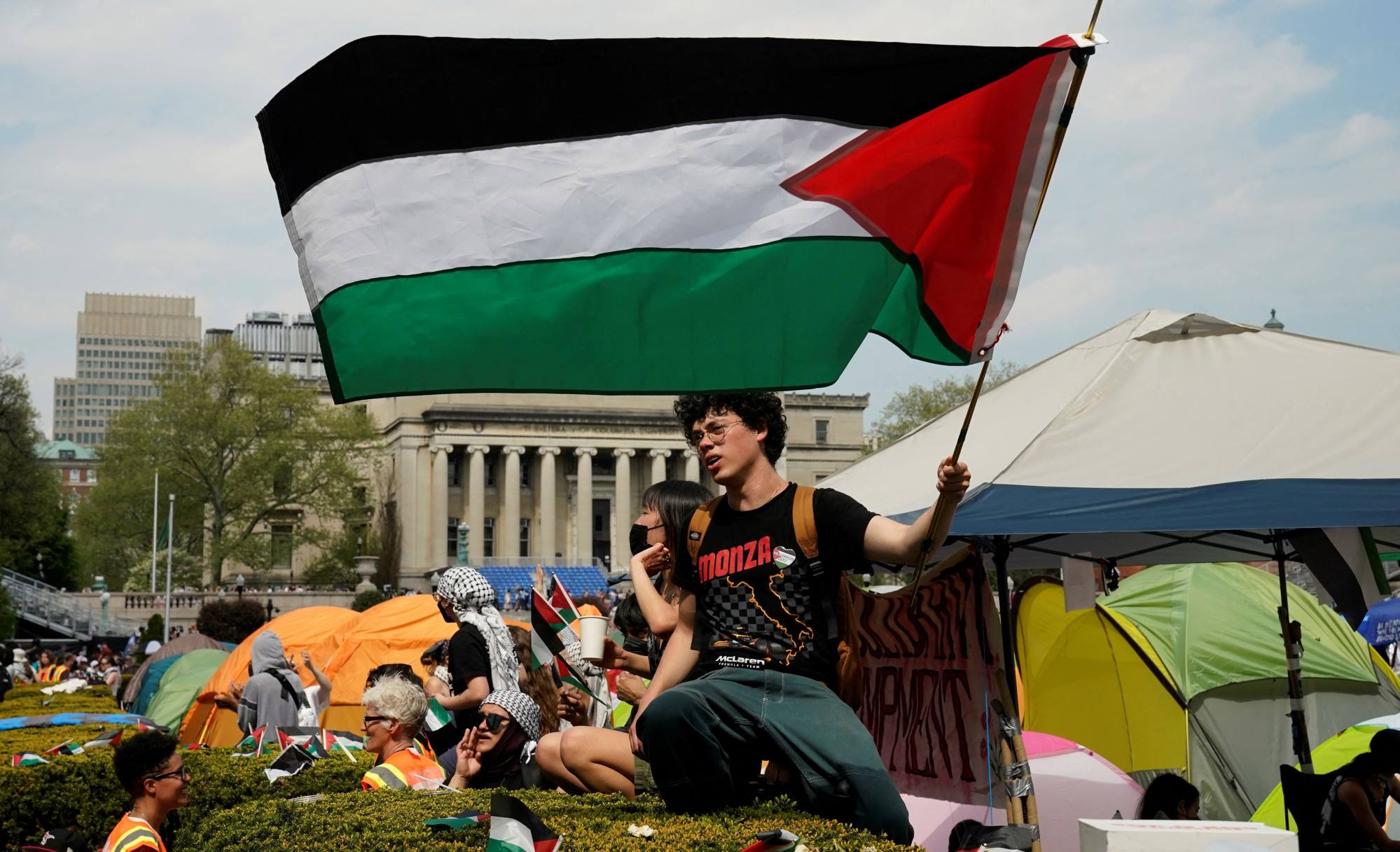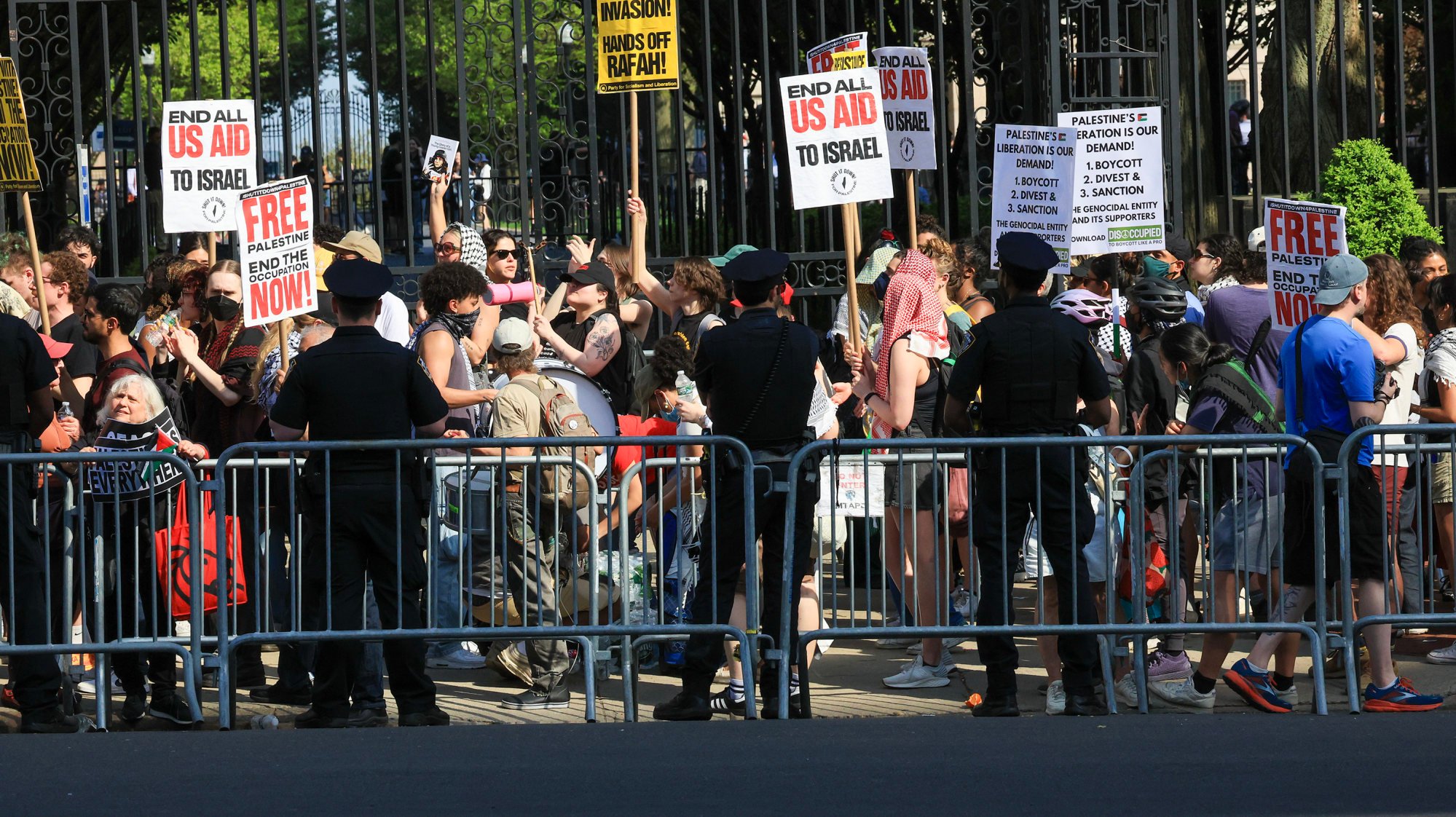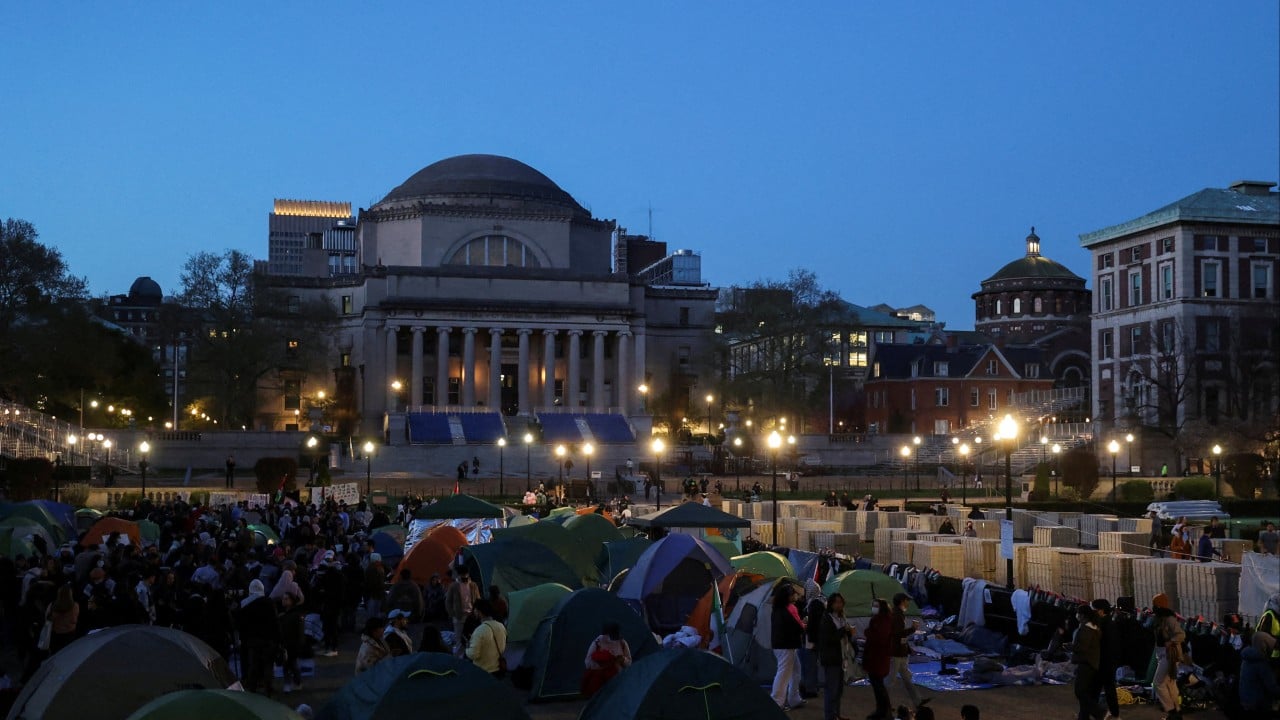Why are Chinese students who feel for Gaza choosing to stay away as pro-Palestine protests sweep US campuses?
Alisa Chen, a postgraduate student from China at New York’s Columbia University, feels the recent wave of pro-Palestine protests on campus is justified.
However, as many of her peers rallied behind calls for Columbia to cut all financial ties with Israel, she chose to stay away.
“I don’t think any side of the war is 100 per cent right,” said Chen, who enrolled at Columbia last year. “Plus, there might be consequences, such as the risk of the school suspending your class or terminating your enrolment.”
She is not alone. The Post spoke to 10 Chinese students enrolled at different US universities. Like Chen, they are outraged by loss of innocent lives, but have avoided direct participation in the protests, citing a lack of personal connection or understanding of both Israeli and Palestinian points of view.
While some are unhappy about how the universities handled the protests, they are more worried about being on the record for participating in them, fearing it might put their student visa or future careers at risk.
Another student from China at Columbia, who asked only to be identified as “Chen”, said her Chinese friends and she had donated some money and offered supplies to students still camping out on the university lawns, after successive New York police raids on the campus.
They logged into social media for updates and observed the goings on at the encampment whenever they walked past, but avoided stepping on the lawns, wary that they might be photographed and “be on the record forever for participating in protests”.
“It’s not so much about the protest’s theme but rather the form of protest itself,” the second Chen said.
While admitting that the pro-Palestine sentiment echoed China’s stance, Chen said she was concerned about the potential risks associated with being identified at such an event when they returned to to China. The fear was particularly strong for a friend of hers, who aimed to secure a stable job at a state-owned enterprise.
Several waves of pro-Palestine student rallies, with protesters making different demands of the authorities, have rippled across US university campuses in recent weeks. They have been sparked by Israel’s continued military assault on Palestine since declaring war on Palestinian militant group Hamas following its deadly cross-border raid from the Gaza Strip last October 7.
Students at Columbia set up the “Gaza Solidarity Encampment” on April 17, calling for Columbia to divest from companies with ties to Israel. The same day, university president Minouche Shafik testified before Congress on Columbia’s handling of antisemitism on campus.
The next day, the principal authorised the New York Police Department to dismantle the encampment, resulting in the arrest of over 100 students.

The mass arrests then sparked a fresh wave of student activism against the war, intensifying tensions within universities and prompting further police raids, with more than 2,300 people arrested or detained on campuses across the country.
In Boston, a similar encampment was set up at Northeastern University. Aaron He, a senior student majoring in finance there, said he did not see any Chinese compatriots get involved in the protests at the university.
“I feel like nothing [in the war] can be changed by the protests,” He said, adding he was more concerned that waves of countrywide protests might escalate, with faculty arrests that could affect his coursework and master’s degree application process.
Tamia Zhou, a PhD student at the University of Southern California, said she preferred to rely on news media for updates on the situation but would avoid walking into any protest or encampment area. She feared that if she was spotted or arrested, her student visa status could be jeopardised and she could be deported back to China.
“I’m not particularly interested in this wave of protests on campus, because they are essentially a consequence of a war taking place thousands of miles away,” Zhou said. “Instead, I lean towards learning more about the war itself. However, there is an overwhelming amount of information to absorb, and I don’t feel qualified to take a definitive stance based on my limited knowledge.”
The protests also reminded some Chinese students of the Hong Kong social unrest of 2019, which in part coloured their opinion of the demonstrations.
Alisa Chen, who was an undergraduate then at Hong Kong Baptist University, said she felt scared when protesters began to remove paving bricks, put up roadblocks and use petrol bombs. She was also afraid of being targeted, as the demonstrations had been initially sparked by a proposed law for extraditions to mainland China.
She said she supported Columbia’s decision to restrict access to the campus and suspend in-person courses temporarily, since it was uncertain if the situation might escalate and become violent.
Jack Jiang, who is enrolled in a master’s programme at the University of Texas, Austin, said that the pro-Palestine protests sweeping the US were peaceful overall, in contrast to those in the later stage of the Hong Kong protests, but the US police entered the fray much earlier.
He was in Hong Kong for a summer school programme back in 2019 and saw riot police get involved when things got violent.
“But here, police started arresting protesters for merely chanting slogans,” he said.

On April 26, the Chinese embassy and consulates in the United States issued a notice cautioning international students to be on guard for risks and steer clear of protest areas and crowded locations.
The encampments in most universities came down last week. Some ended voluntarily after protesters and the schools concerned reached an agreement. Others, including at Columbia, were dismantled after a heavy police presence.
However, only one school, the Evergreen State College in Washington, agreed to fully divest from companies with ties to Israel, which was the initial demand of student protesters across the country.
Others only agreed to “consider to divest” or “disclose their investment list”.
As of May 8, the death toll in the Israel-Gaza war had crossed 36,000, with 1,410 Israelis among them.


